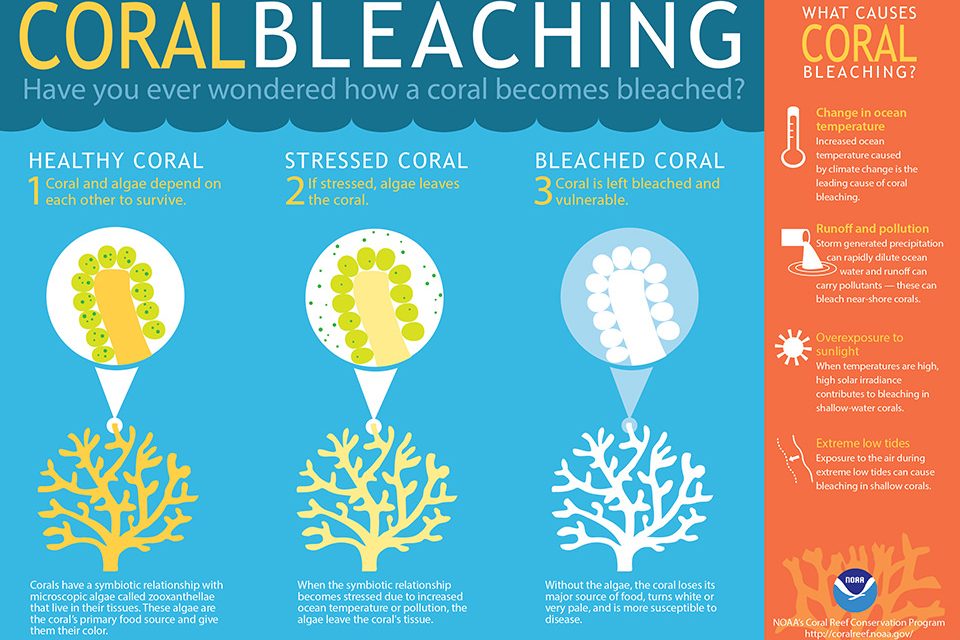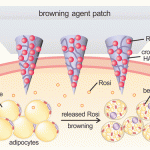
Credit: NOAA Coral bleaching Reef Conservation Program
Coral reefs are our oceans breathtakingly beautiful forests which support a multitude of sea life and act as a natural shielding for coastal regions. Higher sea temperatures from global warming force corals to discharge the symbiotic algae (called Symbiodinium) living in their tissues causing the coral to turn completely white. These colorful “rainforests of the sea” can live through a bleaching event, but they are under more strain and are subject to high rates of die-off. But pollution from carbon dioxide in the atmosphere leads to ocean acidification which limits corals ability to grow and repair. So ocean acidification on top of the bleaching events is wiping out our coral reefs with impact models forecasting that the majority of these sea forests will be gone within 100 years if we do not act immediately to protect them.
In a new study led by Rachel Levin Postdoctoral Scientist from The University of New South Wales, Australia along with her international team of researchers, have developed a novel genetic engineering framework of the symbiotic algae Symbiodinium, may help protect coral reefs from bleaching. Among the different species of Symbiodinium, the significant genetic variation has lead to a wide range of thermal tolerances. In their paper published in “Frontiers in Microbiology”, the international team designed genetic engineering strategies for strengthening stress tolerance of Symbiodinium, using sequencing data from hardier genetic variations of the species. The study has identified key Symbiodinium genes that could be altered to enhance their symbiotic bond with corals to reduce coral bleaching globally, even as ocean temperatures rise. Dr. Levin cautions that detailed impact studies would be crucial before any real world trials on this technology begin, to assess any unforeseen negative side effects. Dr. Levin is satisfied that her team has built the genetic engineering framework to be applied to Symbiodinium advancement, but urges collaborative efforts from other researchers to advance this research.










